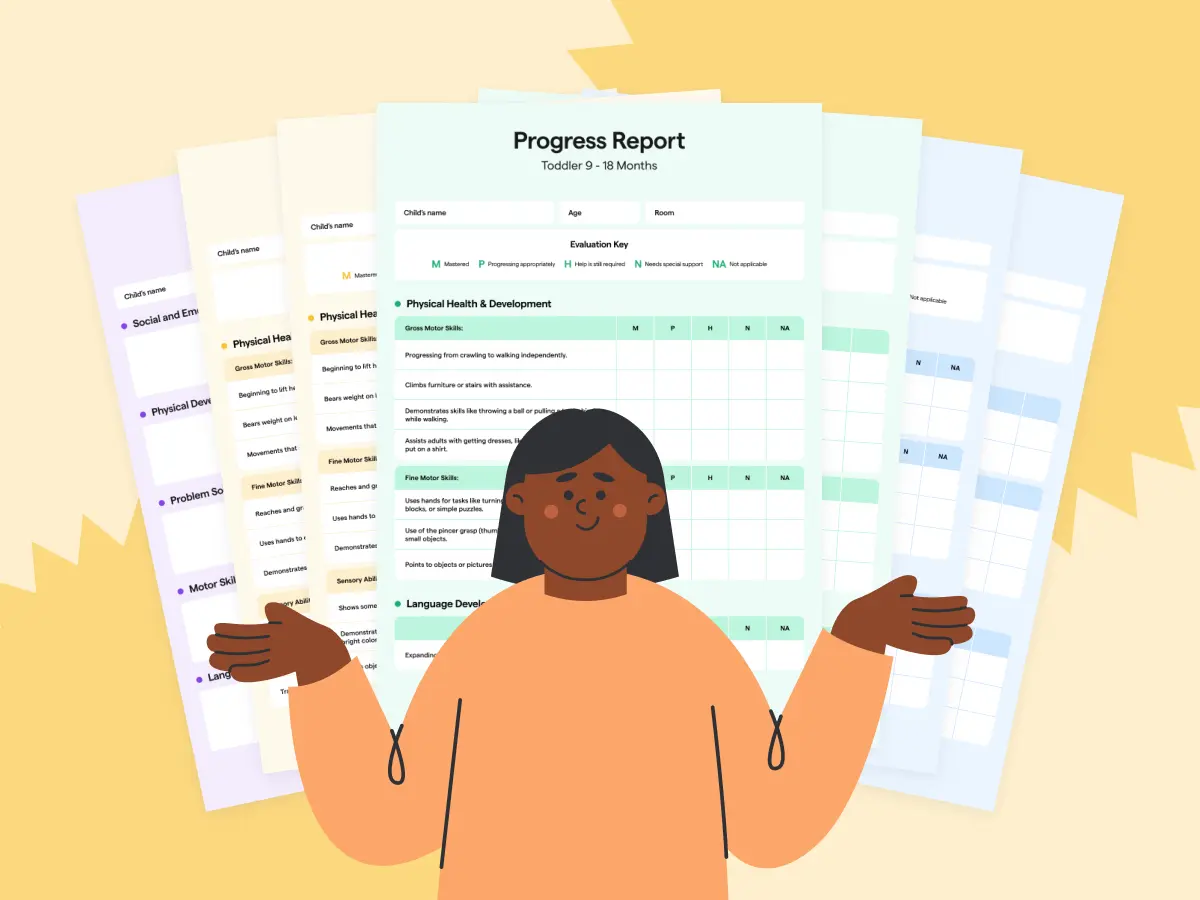settings
children
With Famly since
Three (3) free forms for parent-teacher conferences at your preschool here!
- One for parents to fill out before the meeting
- One for staff to fill out before the meeting
- One to fill out during the meeting
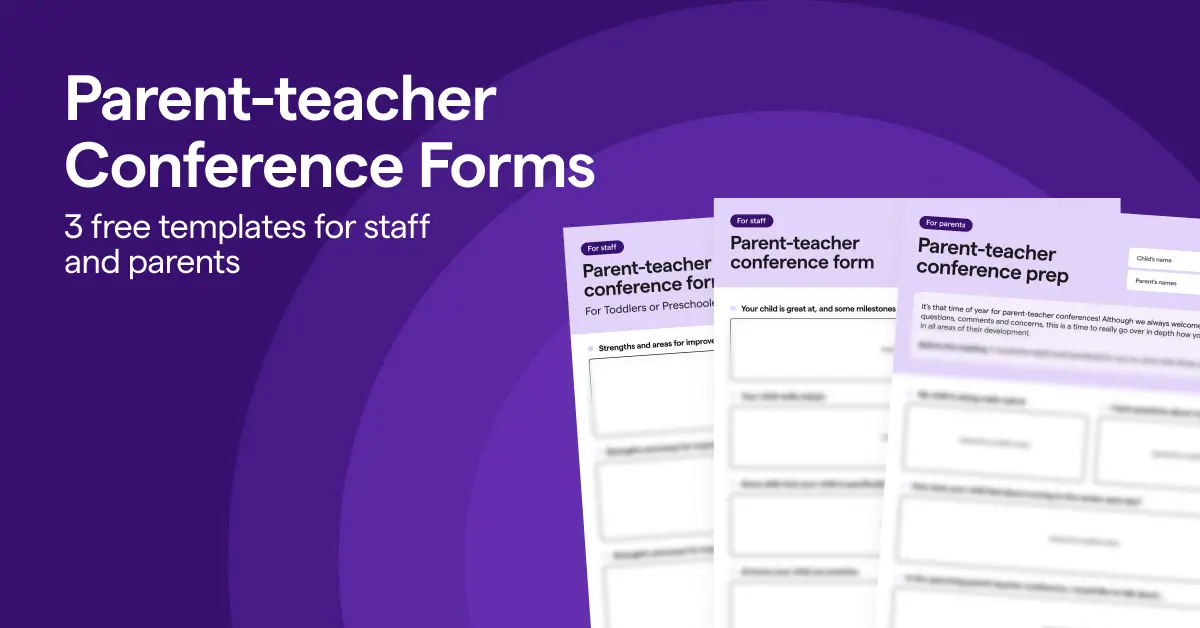
Parent-teacher conferences are valuable throughout a child’s education - yes, even in early childhood education (ECE). Since consistent, open and direct communication is essential to a child’s growth and development, parent-teacher conferences provide a perfect opportunity for this communication and collaboration to happen in-person - which I know is always hard to do with everyone’s busy schedules and the chaotic (in a good way!) lifestyle of running a childcare center.
Preschool parent-teacher conferences can be even more meaningful and effective if the teacher and the family members prepare ahead of time. That’s why I created these free downloadable forms (that you will find at the bottom of this article) to help both staff and the parents come prepared.
But, let’s talk a bit more about the benefits and purposes of parent-teacher conferences in early childhood education.
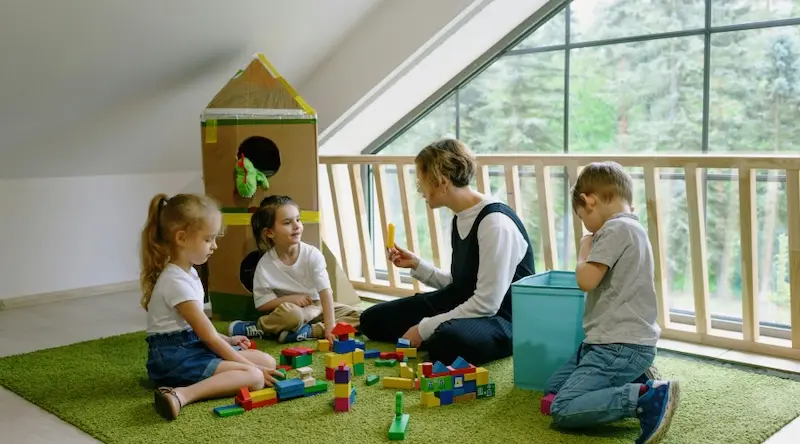
Why am I having a parent-teacher conference in preschool?
First things first, let’s get clear on why early childhood parent-teacher conferences matter:
The big ideas
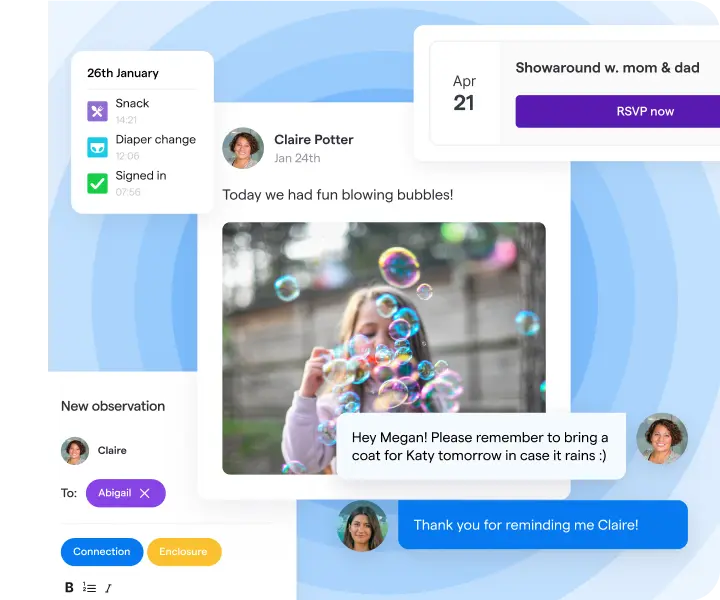
Open, clear and direct communication:
Families and ECE staff should be communicating frequently, but there is nothing more meaningful and effective than in-person conversation to make sure everyone is aligned. It carves out uninterrupted time (which is rare with an infant or toddler) for educators and family members can share observations, concerns, and agree on realistic developmental goals for the child.
Review progress:
A child’s developmental progress might not look the same at school and at home. Parent-teacher conferences are the perfect time for families and teachers to share and compare observations and behavior patterns. Is the child also beginning to use their fine motor skills more at home? Are they trying to speak as much with peers as they are at home with their siblings?
Collaboration and partnership building:
Educators and families bring different types of expertise to the partnership. Educators and ECE staff are experts in all things about early childhood physical and behavioral growth. But, the parents, or primary carers, are experts in their child.
Goal setting:
Reviewing progress is not only to celebrate developmental milestones and discuss their child's achievements. But it is also to understand how to best support the child moving forward. (Also remember, it isn't always about achieving milestones, but any little bit of progress!) Preschool parent-teacher conferences are a great time for educators and parents to set realistic and achievable goals for the child’s development together. This will create a more holistic, and consistent development process for the child - as it will help make the home and school an expansion of the other, rather than being two distinct separate environments.

How to prepare for an early childhood parent-teacher conference?
Before a parent-teacher conference, ECE staff should:
- Send questions for families to fill out before the meeting so they also come prepared (use our free template below!)
- Ask parents and carers how they prefer to receive feedback – do they like examples and data? Or more of an open discussion?
Teachers should be prepared to talk about:
- The child’s academic and developmental milestones and progress.
- Observations about social and emotional growth.
- A detailed overview of strengths and areas for improvement.
- How parents and primary carers can provide support at home.
To do that, the child's teacher should gather:
- The child’s last progress report and notes from the last parent-teacher meeting (if applicable)
- Any other notes, observations or assessments on the child’s behavior and social interactions in the classroom
- Specific examples from activities, like some artwork, or photos of their child building blocks.
- Attendance records (if necessary)
- A list of recommended goals for the child's development, which will also be discussed during the meeting.
- Resources or additional support that might help families nurture their child's development at home.

ECE staff should think about what they want the outcome of the meeting to be. For instance…
- To give a thorough overview of the child’s progress?
- Share effective classroom strategies?
- Discuss ways parents can support learning at home?
- Address specific concerns or questions about behavior or social skills?
- Set clear goals?
Teachers should also anticipate what family members will expect out of the meeting, such as…
- To understand more about their child’s development?
- To address specific concerns or questions about their child's behavior or social skills?
- To learn how to support their child’s learning at home?
- To discuss any special needs their child might have?
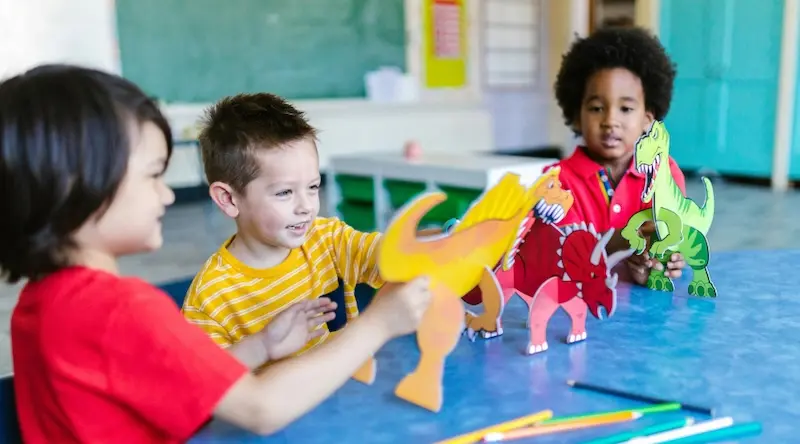
How to make the preschool parent-teacher conference effective and meaningful
- Create a positive environment: The right environment can make all the difference. Both parents and teachers should aim for a positive, collaborative vibe. To create a positive environment, make sure to encourage active listening and be an respectful and empathetic.
- Constructive feedback: Focus on providing helpful feedback rather than criticism. Highlight strengths along with areas for improvement.
- Develop a plan together: They key word here is together. When developing a plan, make sure to set realistic and achievable goals for progress, develop strategies to support learning and development at school and at home and agree on a timeline for checking in on progress and making any necessary adjustments.
What happens after the preschool parent-teacher meeting?
Keep the communication going
You agreed on a plan, but now it’s time to actually put it into action – both at home and at school. But, the collaboration and parent-teacher partnership needs to continue.
Send consistent updates on progress through emails, phone calls, or when you see each other at pick-up or drop-off. (Or even better and more seamless, directly communicate with a childcare management app like Famly’s!)
Also, make sure families know that parent-teacher conferences are not the only time that they can talk to you or address any concerns. Allow them to reach out to you at any time if they have any questions, comments or concerns.
Reflect and adjust
Take some time to think about how things are going and make adjustments if needed. Refer back to the goals and timeline that you set. Remember, goals should be realistic. If the original goals you set are not nurturing progress, then it is absolutely okay to adjust them. Or maybe, the strategy and activities to reach that goal are not resonating with the child. The goals might be attainable, but how to get there might need to be adjusted.
And of course, make sure to celebrate the child’s achievements - no matter how small!
Leave language barriers behind
Bring your multilingual community closer with an in-app live translation tool with over 130 languages.
Learn how live translation works






